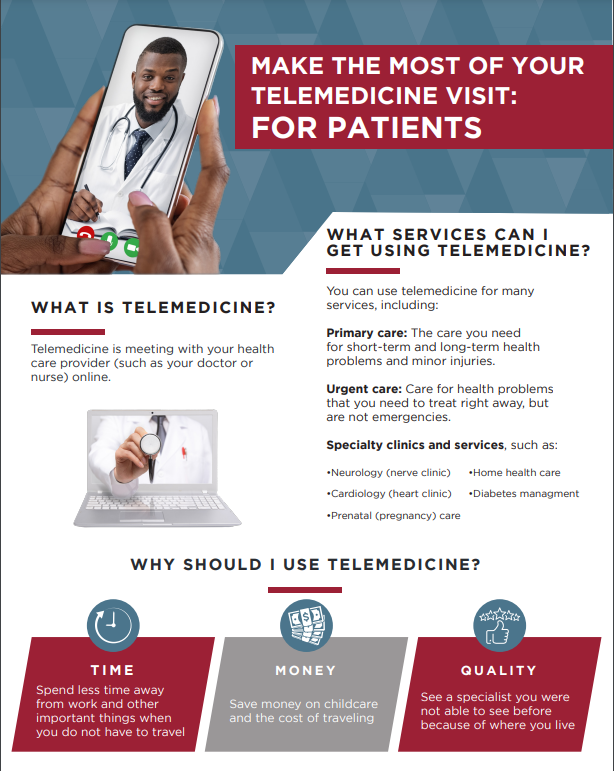Bringing attention to “ageism” and the common misconception that older adults aging >65 are unable or unwilling to use digital health. However, the use of technology among older adults has significantly increased during the COVID-19 pandemic.
Summary of findings from RCTs detailing the impacts of nurse-led telehealth self-care promotion programs on quality of life, self-efficacy, depression, and hospital admissions for older adults.
Data brief examining Medicare FFS and Medicare Advantage beneficiaries’ utilization of telehealth during the first year of COVID-19
Review assessing how telemedicine can increase access to care for BSPD and underserved patients needing specialist care for dementia.
A paper discussing the findings from the CCARRE program whose aim is to provide care for older adults with cognitive impairment in New York City.
A paper discussing the preliminary lessons learned from research funded by the Patient-Centered Outcomes Research Institute. The research focused on populations at risk for health disparities, including low-income, minority, and rural communities.
Systematic review assessing the effects of telemedicine on older adults with dementia using cognitive and mental health assessments.
Applying Grawe’s five general change mechanisms in the design of internet based therapeutic interventions.

Factsheet for patients to use in order to observe maximum benefit from telehealth services.
Scoping review that builds understanding of barriers and facilitators to the use of technology facilitated health care by older adults.
Study assessing how primary care providers can use telehealth modalities to improve patient care via medication education and promotion of adherence.

Commentary encouraging primary care providers to include loneliness screening as a part of the standard workflow.